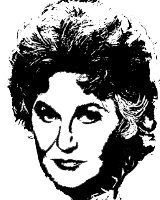Gross Anatomy
Humans are very complex organisms, way more complicated than vegetables or trees, and even most birds, fish, and spiced meats. Humans have been evolving for decades and decades, and, through a controversial process called “evolution,” have shed their tails, horns, claws, fins, fangs, and sideburns until they resembled people just like you and me. But evolution’s not yet done evoluting—in the near future, it is likely that Homo sapiens will grow new, more useful attributes like stickiness, extra earlobes and/or nipples, furry tongues and eyeballs, and new hands growing out of their kneecaps. But don’t go altering your trousers yet—evolution moves very, very slowly.
The human body is made up of three things: bones, organs, and tubes. Bones are the hard things that sometimes break when you get hit with hammers or bricks. Organs are the squishy things that perform complicated functions like turning food into poop or converting air into farts, belches, and talking sounds. Tubes are the long, narrow, tube-like structures that carry fluids and gases and sensory information from one part of the body to another. The tubes, organs, and bones must work in perfect harmony for a person to be able to dance, to laugh, or to reproduce.
The human body is composed of 206 bones, 100 good, 100 evil, and 6 neutral. The left, or sinister, side is generally the evil side. The left femur and fibula are filled with deadly venom. The left ribs each emit a foul odor, and the left hipbone makes off-color jokes about people less fortunate. To counteract this, the right-handed bones are filled with pure good: the right hipbone, for instance, can pasteurize milk. The right tibia sings arias, and the right ulna is the “mystery solving” bone.
The middle bones—the sternum, the pelvis, the jawbone, etc.—must remain neutral to keep the body in perfect harmony. Too often, the neutral coccyx leans towards evil, resulting in a tilt that upsets the balance of the body and causes incurable perversion, dementia, and uncontrollable flatulence.
There are many types of organs, each with a unique role to play in the body. The heart, of course, pumps the blood, and the lungs do the breathing. The testes control our passionate sex drives, while the brain controls the talking and pointing and thinking functions. The glands are sacks that produce important fuels and liquids the body needs to run, like blood, sweat, and tears. The rest of the organs—spleen, liver, etc.—have no apparent use, and are probably left over from the days when humans had dorsal fins and retractable talons.
Finally, there’s the tubes: mass transit system of the body. Without our various tubes, we wouldn’t be able to get food from our mouths to our bellies, our crap from our crap factory to our asses, or our blood from the blood reservoir in the heart to that paper cut on the thumb. It is only be drinking lots of liquids that we can keep our tubes flushed clean and running smoothly.
Humans’ closest relatives are gorillas that can do sign language, kangaroos that can box, monkeys that dance to organ music, and chickens that know how to play tic-tac-toe. With these animals, humans can relate to sports, entertainment, and discourse/debate.
What separates humans from the animal is the thumb. Humans have them, and animals do not. This allows humans to insert spaces between words when they type their written language. Because the animal kingdom lacks thumbs, its written words run together and, therefore, its many languages remain primitive obstacles to clear communication. The German people possess thumbs, but tend to run their words together as well, which is why they lost both World Wars. Someday, animals will inevitably develop thumbs, making them a force to be reckoned with. They will vie for supremacy of the planet, and if they manage to equal human communication (e-mail, text messaging, etc.) they will likely conquer us, as we no longer possess our defensive spikes, horns, claws, and sideburns.


